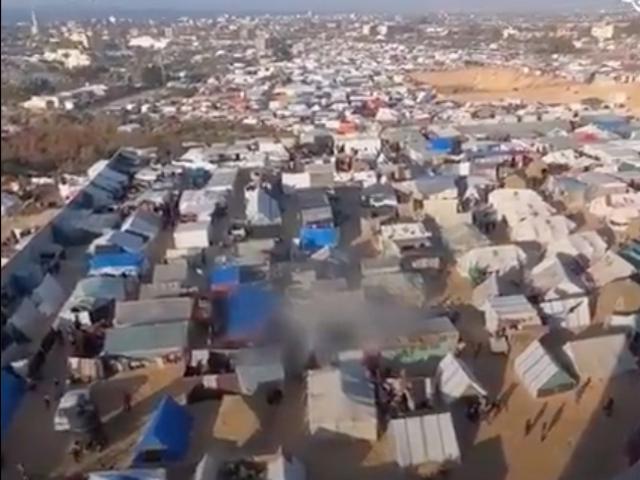The United States has unequivocally advised Israel to reconsider its military strategies concerning the Gazan city of Rafah, amidst escalating tensions. This admonition comes in light of Prime Minister Benjamin Netanyahu's orders to prepare for intensified military actions in Rafah, alongside a surge in aerial assaults in the vicinity. Vedant Patel, the State Department's deputy spokesperson, expressed concerns over the lack of evidence indicating thorough planning for such an operation. He stressed the dire repercussions of embarking on this path without meticulous deliberation, especially given Rafah's dense population of around one million residents.
Patel underscored the imperative of cautious planning prior to launching any military initiatives in such a populous area, warning that proceeding without adequate preparation could spell disaster. Echoing Patel's concerns, Pentagon Press Secretary John Kirby highlighted the grave risks to civilians that an Israeli operation in Rafah could entail under current conditions, emphasizing that such actions would not receive support from the United States.
As both Egypt and the US are ratcheting up pressure on Israel not to take Rafah, it makes you wonder what embarrassing evidence Israeli combat engineers may find in the tunnels from Egypt to Gaza. Only one way to find out, and my guess is that soon we will.
— Jonathan Conricus (@jconricus) February 9, 2024
Amid these warnings, Israeli forces have intensified their airstrikes on Rafah, following Netanyahu's commitment to broaden the military campaign into this southernmost Gaza city, which has become a refuge for over a million Palestinians amid the ongoing conflict between Israel and Hamas. The recent airstrikes targeted residential areas, resulting in at least 11 fatalities, although these numbers remain unverified. The presence of tanks shelling eastern parts of Rafah has also heightened fears of a potential ground invasion.
The U.S. has issued stern warnings against the expansion of a large-scale offensive into Rafah, stressing the catastrophic implications unless the safety of the civilians taking shelter in the city is guaranteed. Netanyahu, on his part, has directed troops to prepare for operations in Rafah, dismissing Hamas's demands in hostage deal negotiations as "delusional." These demands included an Israeli withdrawal from the Gaza Strip and a cessation of hostilities, terms that Israel finds unacceptable as they would leave Hamas in control of the enclave post-conflict.
Middle East crisis live: US tells Israel it will not support Rafah offensive as it would be a ‘disaster’ https://t.co/sYXSACzyCp
— Guardian news (@guardiannews) February 9, 2024
Israel has opted not to present a counter-proposal to Hamas's demands, instead aiming to exert pressure on Qatar, through the U.S., to moderate Hamas's conditions. The U.S., along with Egypt and Qatar, continues to advocate for a hostage release deal coupled with a ceasefire, with a Hamas delegation already in Cairo for talks. Despite Egypt's urging, Israel has declined to send representatives for negotiations, as reported by Channel 12 news.
International humanitarian organizations have voiced alarm over the potential for a major operation in Rafah to exacerbate what is already described as a humanitarian crisis in Gaza. Israel maintains that it endeavors to minimize civilian casualties and accuses Hamas of using civilians as shields, a claim Hamas denies.
State Department spox when grilled by press corps on Israel's possible military operation in Rafah, where over 1 million Palestinians fled: "These are legitimate questions that we believe the Israelis should answer. It's not for us to prescribe actions in these matters." pic.twitter.com/WlFXTKYH7l
— HalalFlow (@halalflow) February 8, 2024
The ongoing conflict has forced over half of Gaza's population to flee to Rafah, located near the tightly controlled border with Egypt. Egypt has cautioned that any ground operation or mass displacement could jeopardize the longstanding peace treaty between Egypt and Israel.


